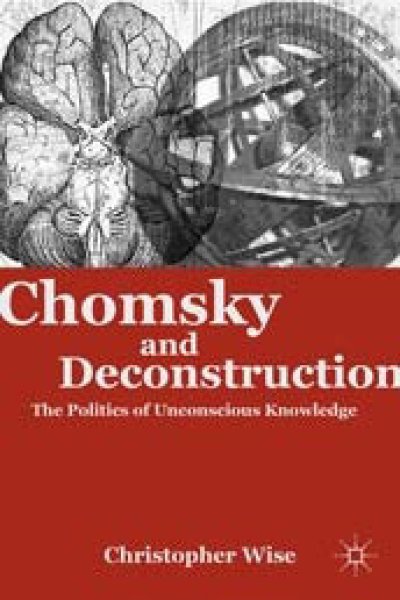Christopher Wise writes new book on 'Politics of Unconscious Knowledge'
Christopher Wise, a professor of English at Western Washington University, has written a book called "Chomsky and Deconstruction: The Politics of Unconscious Knowledge," released by Palgrave MacMillan.
The book responds to Noam Chomsky’s criticisms of deconstructive theorists by exploring the historical dimensions of Chomsky’s philosophy of language. Wise suggests that the Cartesian basis of Chomsky’s thought complicates his claims to have escaped the ancient problems of metaphysics. He also evaluates Chomsky’s criticisms of empiricist theorists of language such as Jacques Derrida, Michel Foucault, Martin Heidegger and Jacques Lacan. This book explores the necessary relation between Chomsky’s linguistic theories and politics by clarifying their shared philosophical basis.
"Chomsky and Deconstruction" was written in response to the WWU English Department’s decision to implement competency assessment in its courses, after being pressured by an external accreditation team. Wise links the pedagogy of generic competencies to Chomskyan notions of "competence" and "unconscious knowledge," as well as the denial of any form of authority that is not validated by academic institutions themselves, which are unavoidably founded as political acts.
Wise argues that the professor who is competent because he/she is endowed with "unconscious knowledge" may reserve for him/herself the exclusive right of representation. However, the "competent" professor typically refuses to validate representation as a matter of political delegation if it threatens his/her power within the institution. In practical terms, this means that diverse faculty members are usually excluded from positions of power – the power to represent their own constituencies -- because they are not deemed sufficiently "competent." This circular logic insures that minority faculty members may be denied the right to represent themselves within the institution.
Wise argues that the university in the United States must begin to honor representation in the form of political delegation, not merely "truthful" or "competent" representation. He also suggests that Chomskyan linguistics is more properly housed in the natural sciences, rather than the humanities, given its rhetorical claims to scientific authority and its tendency to erode the liberal, democratic, and philosophical foundations of the humanities.
Other recent books by Wise include "Being Arab: Arabism and the Politics of Recognition" (Arena 2010), "Derrida, Africa, and the Middle East" (Palgrave MacMillan 2009) and "The Yambo Ouologuem Reader" (Africa World Press 2008).
